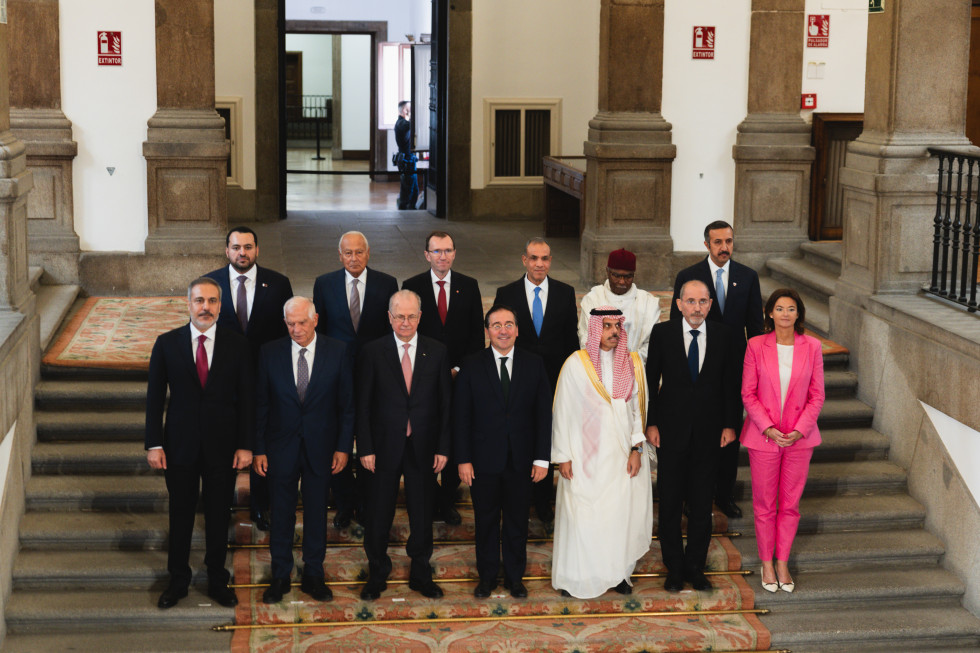Minister Fajon in Madrid: More diplomacy needed to achieve the two-state solution

Meeting of European and Arab foreign ministers in Madrid | Author Ministrstvo za zunanje in evropske zadeve
At the outset, representatives from Spain, Slovenia, Norway, Ireland, Egypt, Jordan, Saudi Arabia, Turkey, Bahrain, Palestine and Qatar, along with the League of Arab States, the Organisation of Islamic Cooperation, and the EU High Representative for Foreign Affairs and Security Policy, Josep Borrell, met with the Spanish Prime Minister, Pedro Sánchez. In their discussions, they stressed that the unified commitment of the entire international community to achieving a two-state solution is the only way to establish lasting peace and security in the Middle East. Furthermore, they stated that it is high time for the international community to take a more active role in resolving this conflict, grounded in respect for international law, UN Security Council resolutions, as well as justice and accountability. “We, both European and Arab countries, must unite and put an end to this war, violence and human suffering. This is not only our shared responsibility but also our duty. We must work towards a political solution and the realisation of a Palestinian state. Slovenia has already taken a significant first step in this direction by recognising Palestine,” Minister Fajon said at the meeting. She added, “The four European countries present here today are coordinating with Arab states for a joint stance in the UN General Assembly and the Security Council. When it comes to the realisation of the two-state solution, it is crucial that we remain united and speak with one voice.”
Following the meeting with Prime Minister Sánchez, the foreign ministers continued their discussions on the need for enhanced cooperation between European and Arab states and on concrete steps towards achieving the two-state solution, a prerequisite for peace.
Minister Fajon emphasised that this meeting comes at a pivotal moment for Slovenia, which is currently presiding over the UN Security Council. In her address, she focused on the importance of establishing an immediate ceasefire, adhering to existing legal frameworks and agreements, and expressed strong support for cooperation with Arab partners.
“Slovenia is committed to upholding existing UN Security Council resolutions, advisory opinions from the International Court of Justice and the Oslo Accords, which form the foundation for establishing a just and lasting peace. This is the basis on which we must build,” the Minister added. She further noted that recent advisory opinions from the International Court of Justice outlined the obligations of all States and the UN, with an emphasis on adopting a collective commitment to creating a specific and precise political framework for implementing the two-state solution.
In conclusion, she reiterated: “The fact remains that for lasting peace, Israel and Palestine must be recognised as sovereign and independent states. Israel already exists as a state. Our task is to encourage other countries to recognise Palestine.”
After the meeting, the ministers issued a joint statement (in English, Word, 21.5KB), in which they committed to joining forces for the implementation of the two-state solution and to convening an international peace conference as soon as possible.
The ministers had previously met in similar formats three times: in April 2024 in Riyadh, and in May and August 2024 in Brussels. This meeting, held in a very narrow format, involved representatives from four European countries that have already recognised Palestine. The next meeting will take place next week in New York on the sidelines of the UN General Assembly.

